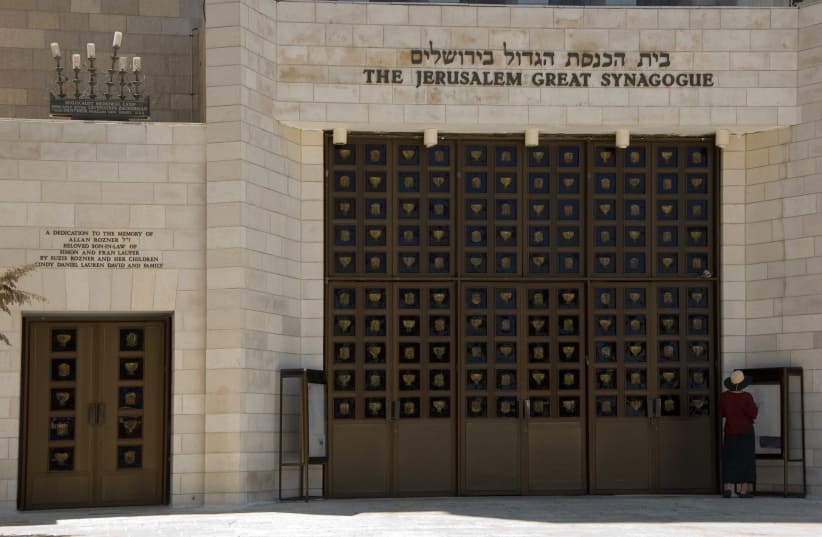The Jerusalem Great Synagogue will be closed to worshipers throughout the High Holy Days due to the coronavirus it said Sunday in a statement.While there are many reasons to remain open for the High Holy Days “in one format or another, nevertheless, the deciding consideration was the personal safety of every one of you,” the statement said.“A deciding factor in this consideration is the lack of information [and the] confusion and debate between experts and the changes in regulations,” it said. “The Great Synagogue is not like other places of worship. It is spread out, requires health checks at the door, commits to forbid the entry of worshipers who did not sign up ahead of time and, of course, commits to limit the number of worshipers.“And even if we stand by these [rules], there is still a risk. One person makes a mistake; one person is positive [for the virus] and did not know; one person who can infect another. The Great Synagogue asks to prevent this risk [from affecting] every one of you.”The Great Synagogue will be closed for the first time since it opened in 1958.“We will all pray for a better year, and if God wills, we will pray in the Great Synagogue soon ‘in a multitude of people with the King’s glory’ healthy and whole,” the synagogue said.The statement was first shared on Twitter by journalist Sivan Rahav Meir on Sunday morning.Since last Thursday’s meeting of the coronavirus cabinet, the guidance for prayer has been changing.In “red zones,” worshipers will be allowed to gather in open spaces in groups of up to 20. Inside a closed building, where the morbidity level is higher, they will be limited to groups of 10 people; the number of groups will be determined according to the number of entrances; each person must have four square meters of space.In other zones, and under certain conditions, the number of people per capsule in a synagogue could increase to allow a total of up to 1,000 worshipers.Maayan Jaffe-Hoffman contributed to this report.

